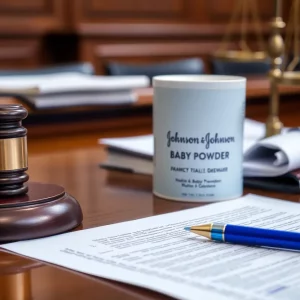Charleston’s Ongoing Battle Over Historical Memory
Charleston, a beautiful city with a rich tapestry of history and culture, finds itself center stage in a renewed debate over how we commemorate the past. Following a recent lawsuit from a local group known as the American Heritage Association (AHA), the conversation around Confederate symbols and their place within our beloved city’s history has sparked discussions across all walks of life.
The Background of the Legal Dispute
Last week, the AHA filed yet another lawsuit against the Charleston County School District. The target? A marker for the Robert E. Lee Memorial Highway, which was removed back in 2021. This latest legal wrangling marks the third foray into the court system in as many years for the AHA. If history is any guide, this lawsuit is unlikely to result in any substantial changes. Past efforts by the AHA have often been met with swift withdrawals or dismissals by local courts. However, the group adeptly uses these campaigns to garner media attention, engage in political maneuvering, and raise funds.
What Lies Beneath the Surface?
Now, some might wonder, what’s really driving this series of lawsuits? The AHA seems less interested in winning in court and more focused on playing the politics of nostalgia and resentment. This leads us to some rather critical questions about how we, as a community, choose to narrate our history and which elements of that history we celebrate.
Charleston’s past is a complex blend of triumphs and tribulations, filled with stories of both achievements and failures. The lessons we draw from our history will undoubtedly shape the future of our city and its residents. The AHA’s legal battles challenge us to consider the values we want to uphold as we tell Charleston’s story.
A Look at the Bigger Picture
In recent years, Charleston’s leadership has leaned into this discussion. Two years ago, a former mayor emphasized the need to focus on the Just Cause of the American Revolution rather than the Lost Cause narrative of the Confederacy. This shift in perspective is not just important; it’s essential for ensuring that every citizen feels represented in our shared historical narrative.
Reflecting on how history exists within the walls of the historic City Hall, former leaders have highlighted the weight of democratic responsibilities. “We are, in every generation, the keepers of what President Kennedy once called ‘that first revolution,’” the mayor indicated during his State of the City address, reminding us that our rights are derived from a higher power and not merely granted by those in authority.
The Spirit of Charleston
Looking back at history, we remember that nearly 250 years ago on Sullivan’s Island, residents from all walks of life stood united against a formidable empire. This early act of defiance not only secured freedom for Charlestonians but also changed the trajectory of human rights across the globe. Thus, our legacy as a city begins here—rooted firmly in the ideals of liberty and justice for all.
As the AHA continues to struggle in its pursuits, it becomes increasingly clear that their vision conflicts with the natural evolution of Charleston’s narrative. The public sentiment is shifting, focusing more on unity, inclusion, and a better future rather than dwelling solely on past grievances.
What Lies Ahead?
The ongoing legal choreography surrounding these historical markers may be contentious, but it propels a necessary dialogue about our collective identity. As we navigate these waters, we must recognize the role that history plays not just as a record of what was, but as a guide for what can be. Charleston’s true story is one of resilience, hope, and a commitment to ensuring that every citizen feels valued in the ongoing journey toward a brighter future.
In the end, while the AHA may continue to pound the table, the most important verdict resides in the court of public opinion, where the values of equality and acceptance hold steadfast—proving that the Lost Cause is destined to lose against the true spirit of Charleston.



























